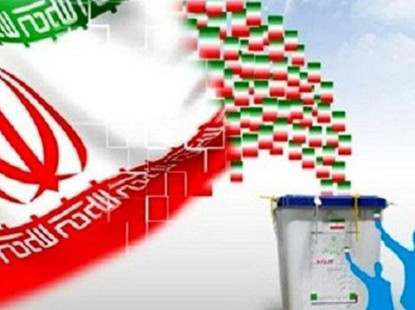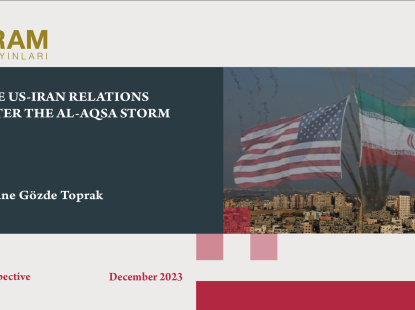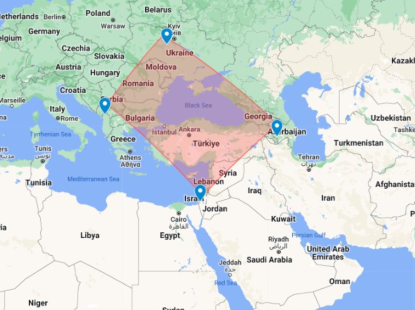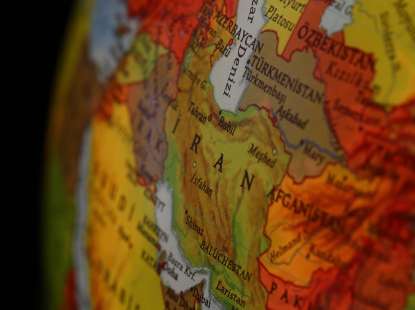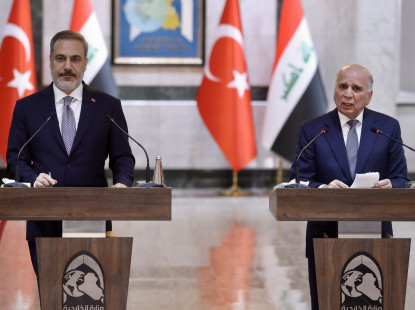US-Iran Relations in the Trump Era
US-Iranian relations have entered a phase of uncertainty after the election of Donald J. Trump, who has pledged to revoke the nuclear deal between the P5 + 1 states and Iran during his campaign, as the US President. The debates about possible changes in domestic and foreign policy are proceeding with the results of the presidential elections leading to Donald Trump's triumph that has been highly contentious across the United States and contrary to the expectations of many observers. Trump's harsh criticism of Barack Obama’s foreign policy during his election campaign, his declaration of implementing significant changes in this area, and especially his determination to tear apart the nuclear deal between Iran and the P5 + 1 states if he wins the elections, induces a great deal of curiosity in the matter of US-Iranian relations. As a result of the deal reached in July 2015 after long-standing negotiations between Iran and the five permanent members of the United Nations and Germany, Iran has agreed to seriously curtail its nuclear activities to ensure the removal of international sanctions imposed on it. The agreement has also been criticized by the hawks of both sides, and some circles in Israel and the United States have criticized the salient points of the deal that include official recognition of Tehran's nuclear activities – particularly uranium enrichment – and delimitation of important parts of the agreement for 10 and 15 years to suggest that Iran would use the resources gained from the subsequent economic relief to enhance its activity in the region and to sustain its support for terrorism.
Anti-Iran Rhetoric of Trump’s Core Team
The Obama administration's rapprochement with Iran at the expense of enraging its traditional allies in the Middle East and its facilitation of regional interventions – particularly in Iraq, Syria and Yemen – has not only attracted serious reactions from the regional states like Israel and Saudi Arabia, but also from within the United States. The Republican leaders have particularly not hesitated to criticize policies towards Iran in the harshest manner. For instance, the former New York Mayor, Rudy Guiliani, who is highly likely to secure a place in Trump’s cabinet, did not settle on vehemently criticizing the Obama administration at the meeting of the People's Mujahideen Organization (PMO) in 2014, that was listed as a terrorist organization by the Washington administration until 2012, and heralded the leader of the PMO, Maryam Rajavi, as a hero while declaring Hasan Rouhani “the biggest murderer in Iran.” Likewise, Newt Gingrich, who is among the potential nominees for the Secretary of State Department, saluted Rajavi as the "elected president" in a highly participated convention in Paris last July. These examples indicate that Trump's position against Iran will be far different from his predecessor.
Campaign Promises and Facts
Nevertheless, it may not be realistic to expect visible policy changes towards Iran, even if we considered the language used in the past and during the election campaign by Trump and its immediate circles. US presidential candidates giving up on their campaign promises is a well-known fact: recall Obama's remarks about the alleged Armenian genocide. In fact, when a journalist asked one of the Trump's foreign policy advisers, Walid Phares, after the elections; "Is Trump really going to tear the nuclear deal?" Phares’ remarkable, but moderate reply was; "Tearing is a heavy expression, but it will definitely be reviewed." Regardless of Trump's previous rhetoric, there are various reasons for why he cannot break the nuclear deal. First and foremost, the deal that spans more than five years in preparations, demonstrates a mighty consensus among global powers, and if Trump tries to completely nullify this agreement, re-convincing states like Russia and China to take steps against Iran appears to be very difficult. It will not be easy for Trump to undertake such an initiative, especially when he plans to develop closer cooperation with Russia.
On the other hand, such a step will strengthen the perception about Iran’s righteousness among the international community by representing Iran as a state abiding by agreements and the USA as an unreliable country. Additionally, it must be remembered that the main reason behind the global acceptance of the deal was the failure of negotiations and attempts at finding a diplomatic solution for the issue as well as a result of a general conviction that Iran may turn into a new North Korea in the region that may lead the international community to a hot conflict. Therefore, Trump is hardly expected to take any harsh measures against Iran unless he envisions a renewed major regional conflict.
Trump’s Impact Will First be Felt in the Economy
Nevertheless, this does not mean Trump has no trump cards against Iran. Firstly, if we continue along the nuclear deal issues, the fundamental objection of Iran since the signing of the treaty was that despite a visible hiatus in nuclear activities to fulfil commitments, economic sanctions against the country are merely lifted on the paper and international institutions and global corporations are reluctant to do business with Iran. Indeed, many large firms were awaiting the outcomes of the US presidential election before embarking on long-term and large scale investments in the lucrative Iranian market. International business circles expected these firms to gradually start entering Iran in the event of Hillary Clinton’s victory. As a matter of fact, the US Treasury Department had passed a green light to Airbus for selling 17 passenger airplanes to Iran at the end of September, and the first planes were expected to be delivered at the beginning of the year according to various international press reports. In this context, it will be safe to predict that the first direct impact of Trump's election on Iran would be in terms of economy. Thus, the immediate post-election crash of Tehran’s stock market that remains unaffected by the international developments under normal circumstances due to its limited size, and the sudden increase in dollar prices indicate investors' anxiety over the situation. Therefore, the appetite of international investors appears to have disappeared even though there remain several months till Trump gets his hands over the White House’s rudder. This situation will put the Iranian government, which has been in need of sizeable foreign investments to fund large-scale infrastructure projects that have been neglected over the years due to sanctions and low oil prices, into a very difficult situation, and will force Rouhani to revise the previous announced growth forecasts.
The Possibility of New Sanctions
On the other hand, even Iran may not face any difficulties due to nuclear activities, the possibility of the imposition of new sanctions, particularly for advancing ballistic missile technology, infringing human rights, or buttressing terrorism, is yet another issue of concern for the country. In particular, tight sanctions on the financial sector have forced Tehran to step back in the face of sanctions that were initially deemed "ineffective" and a "piece of paper" by Iranian senior officials, and forced them to make significant concessions on the principles they previously saw as red lines. This comprehensive and multi-faceted sanctions process enabled the US administration to learn Iran's weak points. Therefore, Trump and his team possess an already tested and yielding prescription in their hands if they really want to hurt Iran. Trump – who has prioritized ISIS in the case of Syria and Iraq – seems unlikely to take any action to curb the growing influence of Iran in these countries, at least at the present stage. On the other hand, the new administration that is known for its pro-Israel supporters may be able to put pressure on Iran – especially through Hezbollah – as a gesture to Israel whose stars do not align with Obama’s.
Hezbollah can be Targeted
If the proposed US-Russian reconciliation in Syria works out, Hezbollah – which has achieved the potential to operate sophisticated weapons and larger manpower apart from emerging victorious in the civil war and becoming a greater source of threat to Israel than ever – can be targeted. It can be assumed that the Moscow administration will not voice any concerns in this matter. Moreover, the coordination of Israel and Russia over the operations on the Lebanese-Israeli border – particularly the Golan Heights – as well as the absence of Russian objections to Israeli air strikes to target Hezbollah commanders in Syria at times, is a widely known matter. Such a situation, which is likely to be accepted by Assad and Putin, who have entrenched their positions, can put Iran in a very difficult situation. However, the betrayal of Iran by the allies, which has justified its presence in Syria through Hezbollah and anti-Israeli sentiment in a more violent version of the 2006 war will create different complexities.
Reactions to Trump’s Election
At this point, the different reactions to Trump’s election coming from within Iran are worth mentioning. Prior to the election, Ayatollah Khamenei – the top name of the country – had declared Trump more candid than Clinton, and that Trump was accused of being populist because of his affinity to speak the truth. President Rouhani argued that the US would not be able to unilaterally renegotiate the nuclear deal, and stressed that the election of Trump would not bring about any significant change in relations because the treaty was bolstered by UN resolutions. Another systemic stalwart, Hashemi Rafsanjani, posited that his country has not seen a difference between the Democrats and the Republicans since long. Foreign Minister Zarif, on the other hand, preferred a more diplomatic language. He added that the elections are the internal affairs of the USA and other countries like Iran must not interfere in the former’s internal affairs. He also suggested that the same would be expected from other countries when it comes to Iran. He also expressed the hope that the new administration will fulfill the obligations of the nuclear deal.
Rouhani’s Hand will be Weakened
Even though the news about Trump's desire to establish good relations with Russia; the possibility of curtailing already limited aid to Syrian opposition by the US, and the Saudi delight over US elections, have dominated the moderate press; one of the ideologues of the of the moderate wing, political scientist and journalist Sadegh Zibakalam has posited that Iranian authorities could not benefit enough from the Obama administration to solve the chronic problems between Washington and Tehran, and they will soon start searching for Obama and Kerry with candles. Conservative news websites like Fars that are close to the Revolutionary Guards preferred to highlight the fact that all possible anti-Iranian candidates for the Secretary of State for Foreign Affairs are anti-Iran and have close relations with anti-regime groups such as the People's Mujahideen Organization.
As a result, the attitude of the Trump administration towards Iran will certainly be different from that of the Obama administration, but it remains unclear what its tone would be. Even if the nuclear deal is unlikely to be fully abolished, the mere impression that republicans traditionally hold anti-Iran stances, and that the Israeli lobby will assume a more effective role in the new US foreign policy indicates that a far difficult period than the last eight years is ahead for Iran. This will undermine the position of Rouhani – who holds a moderate foreign policy stance – in the country that will go to the presidential elections in six months, and strengthen anti-Western extremism.
This article was first published in ‘‘Anadolu Agency” on 17 November 2016.
http://aa.com.tr/tr/analiz-haber/trump-doneminde-abd-iran-iliskileri/687467




